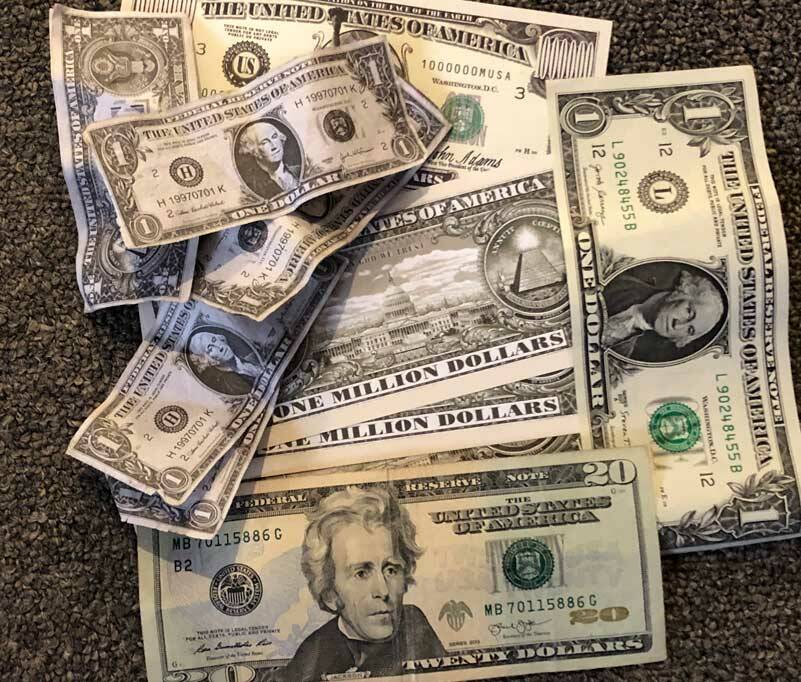By Morf Morford
Tacoma Daily Index
Several years ago I attended a financial management workshop.
The speaker told us about his brother, a New York Stock Exchange (NYSE) investment broker.
This broker was one of those who worked 60-80 hour weeks and never married or had children.
When he would fly home (South Sound area) for the holidays, he had a unique gift for his nephews and nieces over age ten.
He would give each one a check for $1,000.
There was only one stipulation; they could not use it or spend it on themselves.
They could give it to a friend, a neighborhood group or a favorite charity.
Or they could start their own non-profit or charity group.
And many of them did.
As children.
After many years of this (with $1,000 of seed money coming each year) these kids learned or established rules of philanthropy – and they learned directly what worked and what didn’t.
By the time they became adults, each one, besides their more standard achievements in school or sports, had become a near-expert in foundations and financial advocacy for their pet causes.
Most of us, as young people or even as adults, work to earn money.
Alongside that, these kids had learned how to give money away.
I would argue that knowing how to give money away is at least as important as knowing how to earn it.
If nothing else, these kids learned a set of important lessons about how to make money work for them – instead of just being used for buying things.
“Money is like manure; it’s not worth a thing unless it’s spread around, encouraging young things to grow.” – Thornton Wilder, The Matchmaker
Money, after all, has been described as “green energy” – money, for better or worse, has the power to make things happen, and just as equally, lack of money is enough to stop many projects – even relationships – in their tracks.
Many, if not most us, gladly support charities, churches or non-profits that support or advocate what we believe in.
Those organizations depend on our contributions.
Thousands, if not millions of small contributions make a huge difference in the work and survival of an untold number of organizations that do good work in and around our communities.
As our bifurcated “K” shaped economy becomes ever more solidified and, to us a Biblical phrase, “the rich get richer and the poor get poorer” gets ever more entrenched in our thinking and in our policies, it might be time to consider both the history and the application of such assumptions.
The “rich get richer and the poor get poorer” is far from a description of how economies SHOULD work, but an appraisal of how, all too often, they do work.
When the wealthy and powerful write the laws they often, perhaps without intending to, write laws and policies to their own advantage.
Many major banks for example, in mid to late 2021 reported a major increase in profits “earned” by penalties on account holders.
The Consumer Financial Protection Bureau (CFPB) (in December of 2021) reported that banks are relying heavily on overdraft and insufficient funds fees.
These penalties make up two-thirds of their fee revenue.
In 2019 alone, said the CFPB report, banks made about $15.47 billion from people who don’t have enough money.
Of the big banks, JPMorgan Chase, Wells Fargo and Bank of America accounted for 44 percent of that $15.47 billion.
Whatever your political philosophy, it is a core premise of capitalism that money is earned by providing a good or service.
Taking money from those who are already unable to pay is, again whatever your political or economic philosophy, clearly NOT an ethical or sustainable business model.
Charging a fee from your own customers when they have already shown an inability to pay is, to put it mildly, not a way to win customer loyalty.
In our current system, money piles up in some areas and is leached out of areas that can already ill-afford it, we have what history has shown we would always have in unequal economies; increasing crime, desperation and homelessness on one side, and ever increasing vanity projects of the wealthy from elaborate castles or estates to, in 2021, space projects by those with more money than they, literally, know what to do with.
Having too much and not having enough are hazards to individuals and societies.
This dislocation impacts our economy in a variety of different ways.
Newsweek magazine recently reported, for example, that half of all American households were priced out of the market for used cars.
Extreme wealth and poverty leads to idleness and corruption, rage and revolution.
And, back to the Bible, economic inequity weighs heavily on our souls and impacts our attitudes towards others and our place in the world;
Two things I ask of you, Lord; do not refuse me before I die:
Keep falsehood and lies far from me; give me neither poverty nor riches,
but give me only my daily bread.
Otherwise, I may have too much and disown you and say, ‘Who is the Lord?’
Or I may become poor and steal, and so dishonor the name of my God.
– Proverbs 30:7-9
Corporations, out of a sense of ethics or tax liability have a long history of “giving back”.
America’s richest family, the founders of Walmart, for example, run the more than $5 billion Walton Family Foundation.
With that scale of capital the Walton Family Foundation supports art museums, bicycling programs and trails, and civic engagement – including environmental and “liberal” causes and organizations – including a Tacoma-based music and arts venue (more on that in a future article).
You can see more of what the Walton Family Foundation does with its money here – https://americannonprofitacademy.com/nonprofit-news/3-walton-heirs-foundations-are-growing/?
You won’t find any vanity space projects there, but you might be surprised to see where those Walmart profits go.





